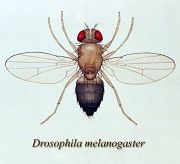Article
Brain Enzyme Targeted by Epilepsy Medication Contributes to Sleep Loss
Author(s):
Research in fruit flies shows an enzyme commonly targeted by epilepsy medications contributes to sleep loss, according to research published in Molecular Psychiatry.

GABA transaminase, an enzyme targeted by some epilepsy medications, contributes to sleep loss, according to research published in Molecular Psychiatry.
Amita Sehgal, PhD, and colleagues at the Perelman School of Medicine at the University of Pennsylvania, studied the structure and function of the brains of mutant fruit flies — called sleepless (sss) — and confirmed that inhibiting the enzyme GABA transaminase is a factor in sleep loss. The researchers noted that the relationship between the sss protein and the neurotransmitter GABA is not completely understood.
“Changes in GABA transaminase activity are implicated in epilepsy and some other psychiatric disorders, which may account for some of the associated sleep problems,” said Sehgal in a press release.
The researchers studied the proteomics of the fruit flies’ brains and found that, compared to controls, the brains of flies that had the sss protein also had increased GABA transaminase presence. The brains of flies in which the sss protein (which controls neural activity) was absent were characterized by increased neural firing.
The GABA transaminase works in the mitochondria, Sehgal explained, which provides energy for neurons. The increased neural firing increases the energy demand, which “probably alters mitochondrial metabolism, including GABA transaminase function in glia,” according to the news release.
The increased energy demands on the glia increase GABA transaminase and decrease GABA, contributing to sleep loss. In flies that lacked GABA transaminase, sleep was increased.


